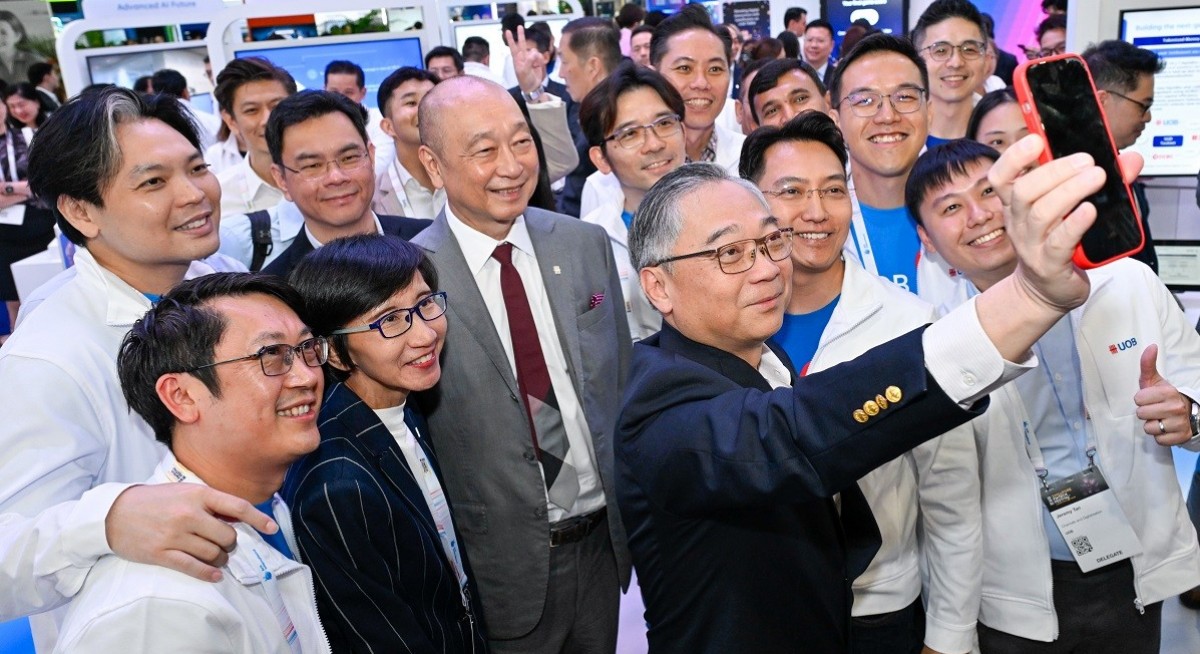The remarks underscore how the nation is translating institutional credibility—once built on keeping ports open and honouring trade commitments—into a digital trust franchise, even as land and energy constraints limit traditional infrastructure expansion.
Digital assets play
The Monetary Authority of Singapore (MAS) was among the first globally to establish stablecoin regulations, and Gan confirms the city-state will pursue a "leadership position in developing rules and guidelines in digital assets" while ensuring interoperability with partners.
"We recognise that there is a role for digital currencies and digital assets in today's world, but we need to [adopt] them in a very careful way," says Gan. The approach mirrors Singapore's historical playbook of developing frameworks early, testing via regulatory sandboxes, then scaling once proven.
See also: Singapore Fintech Festival’s 10th edition drew over 70,000 participants from over 142 countries
MAS's regulations aim to protect retail users while enabling innovation that generates "economic value," he says, acknowledging that risks around custody security and cross-border functionality remain. The city-state has launched multiple pilot programmes, including Project Orchid and Project Guardian, to test tokenised asset applications in controlled environments before broader deployment.
Three-tier AI strategy
On artificial intelligence (AI), Gan outlines a national strategy focused on universal literacy, systems integration and advanced development, likening AI adoption to the spread of the internet a generation ago.
See also: JPM launches USD onchain deposit token, which acts like a bank deposit
"We want to make sure that all our companies (big and small) and everyone have a basic understanding of AI. This basic literacy forms the foundation, followed by developing AI system integrators who can apply the technology to business operations, and finally [cultivating] developers who create new technology, applications, and tools,” he says.
While Singapore's compact geography gives it an advantage for rapid deployment, guardrails remain paramount. The government is developing ethical guidelines and deployment frameworks, working with "like-minded countries" on shared standards. "If you don't do so, eventually AI will create more harm than good," warns Gan, citing risks from deepfakes to financial scams that exploit the technology.
Can't wait and see
Beyond digital infrastructure, Gan emphasises that Singapore's regional economic integration efforts remain critical to weathering global uncertainty.
He cites completion of negotiations to upgrade Asean's century-old goods agreement and enhance the Asean-China free trade area, framing deeper regional integration as Singapore's hedge against rising protectionism.
"Many countries and economies are taking a wait-and-see attitude. My suggestion is that we need to watch, but we cannot wait. We need to continue to plot our direction. Chart our way forward for Singapore"
Pointing to recent initiatives, Gan references the Future Investment and Trade Partnership among trade-dependent economies and Asean's pursuit of digital economy frameworks with both the European Union and the Gulf Cooperation Council — bloc-to-bloc arrangements that sidestep traditional bilateral structures.
The strategy reflects Singapore's calculus that jurisdictions offering regulatory clarity will capture disproportionate value as digital commerce reshapes cross-border flows. The city-state kept ports open during Covid-19, a reliability test Gan suggested pays dividends as firms seek stability.




